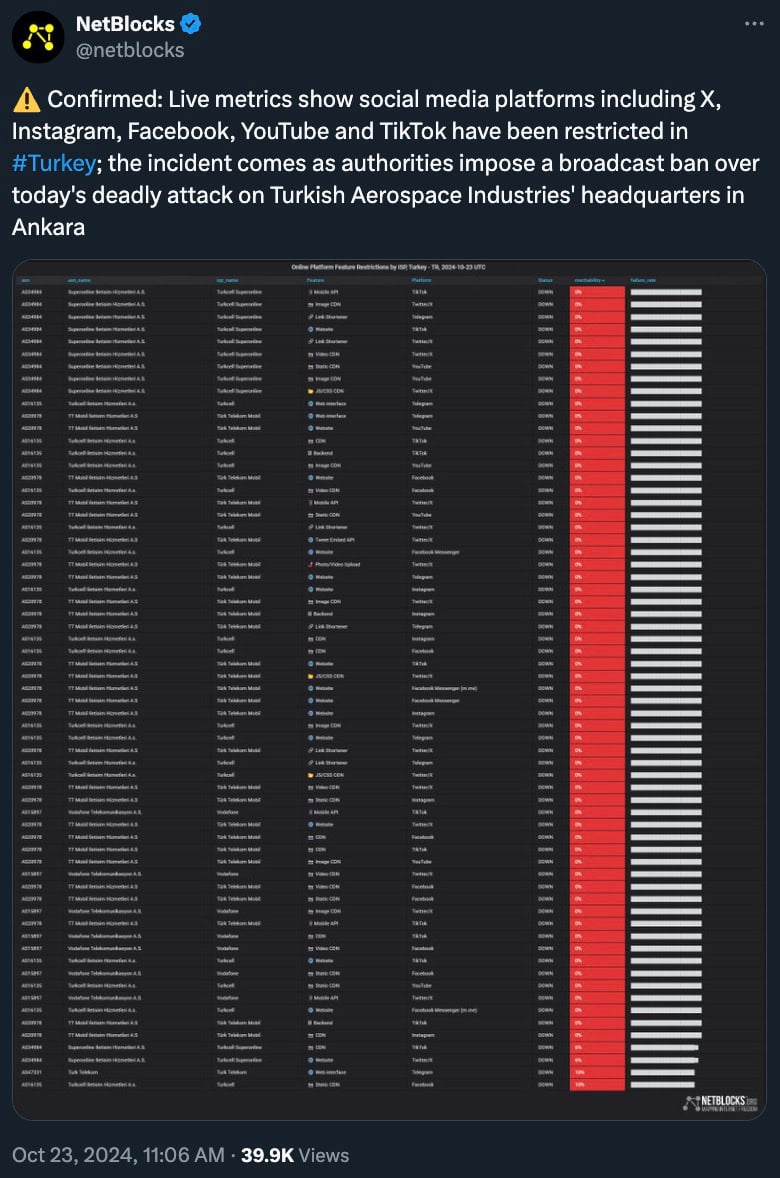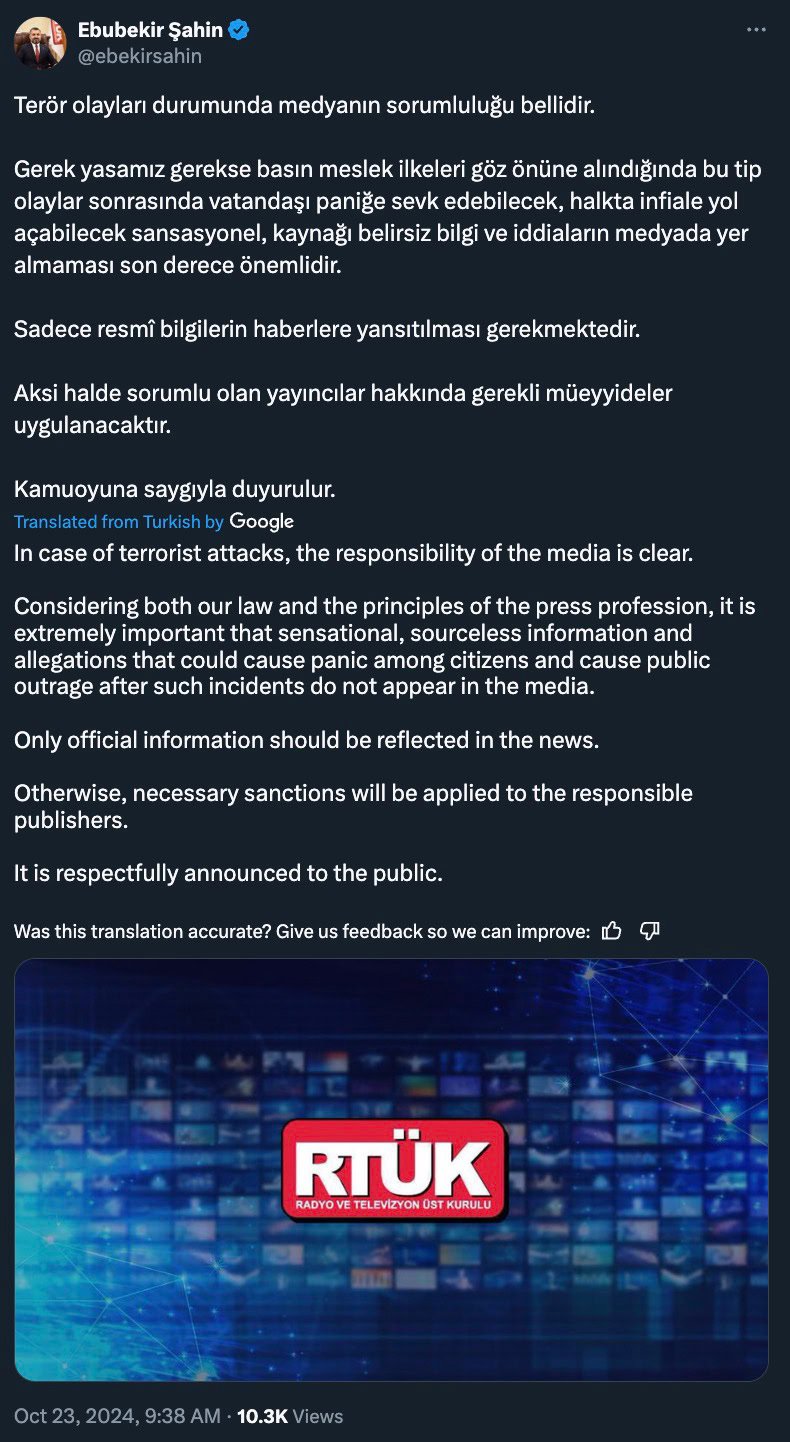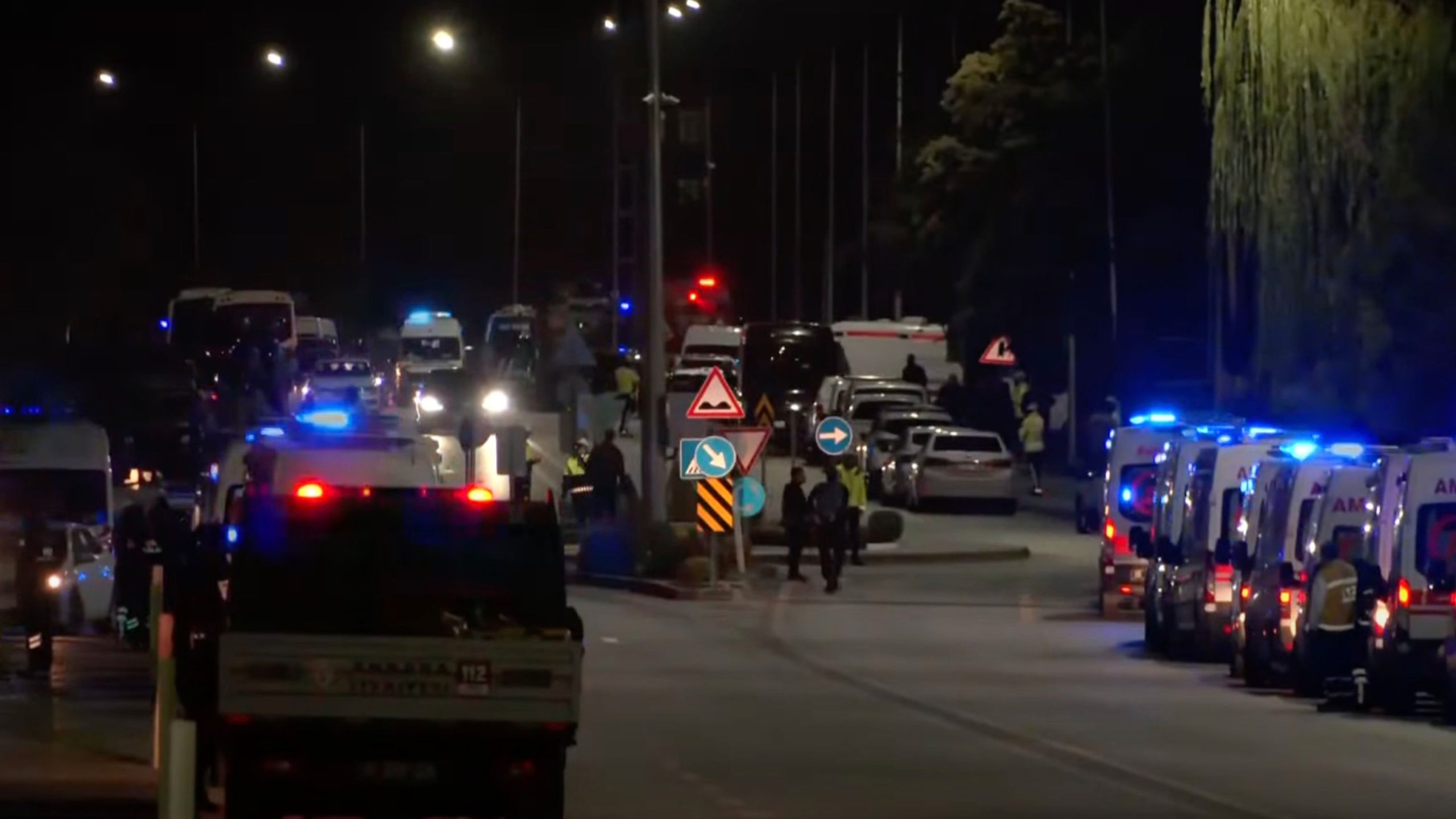Following a deadly attack on the Turkish Aerospace Industries’ headquarters in Ankara, Turkish authorities have intensified their media and internet censorship efforts. NetBlocks, an organization monitoring cybersecurity and governance of the internet, has confirmed the restriction of several major social media platforms including X, Instagram, Facebook, YouTube, and TikTok. These measures are part of a broader broadcast ban aimed at controlling information concerning the attack.

According to the latest data from NetBlocks, a range of online platforms and websites are experiencing disruptions. The chart indicates the extent of the restrictions, with many popular services marked in red to denote a complete blockage, while others show partial restriction. This extensive internet clampdown affects not only social media but also various messaging and news platforms, complicating the flow of information both within and outside of Turkey.
A deadly terror attack has struck Turkey’s defense and aerospace industry, claiming multiple lives at the headquarters of TUSAS, a leading company in the sector, according to the nation’s interior minister. The incident took place in the Kahramankazan district of Ankara, where a loud explosion echoed through the area, followed by an intense exchange of gunfire, as reported by local media outlets.
Interior Minister Ali Yerlikaya, addressing the nation on X, stated, “A terrorist attack was carried out against the TUSAS facilities in Kahramankazan, Ankara. Unfortunately, we have martyrs and injured people.”
Ebubekir Şahin, Chair of the Radio and Television Supreme Council (RTÜK), announced on social media that a court has implemented a broadcast ban on the incident. This ban restricts media outlets from sharing any images from the scene.

This level of restriction is unusually comprehensive and has sparked significant public and international concern. The shutdowns are affecting countless users, hindering communication and the dissemination of news. As the situation develops, access to reliable information remains crucial, and many are turning to VPNs and other means to bypass these new digital barriers.
In recent years, governments around the world have increasingly turned to censorship as a tool for controlling the narrative surrounding major events, ranging from political unrest and public demonstrations to terrorist attacks and national security threats.










